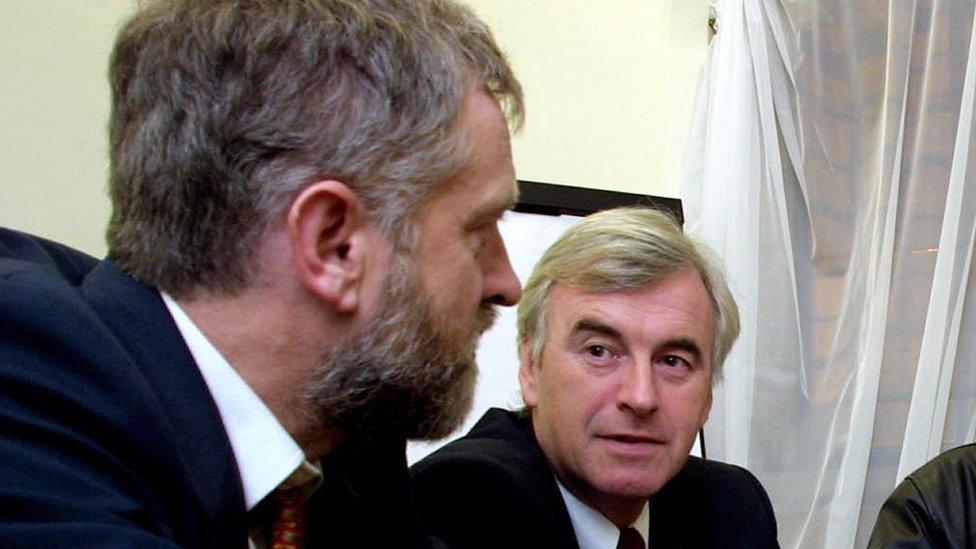Jeremy Corbyn at TUC: 'Labour can win 2020 election'
- Published
Jeremy Corbyn accused the Tories of being "poverty deniers"
Jeremy Corbyn has said Labour can win the 2020 election with a "vision of a better society" - and accused David Cameron of being a "poverty denier".
He told the TUC conference austerity was a political choice and a "more equal" Britain was "not a dream".
And he suggested a greater role for Labour members and trade unionists in policy formation, saying he would not be "an all-seeing, all-knowing leader".
The Conservatives have warned a Corbyn government would wreck the economy.
Mr Corbyn told TUC delegates in Brighton he wanted wide input, including from unions and Labour branches across the country, using social media as part of digital policy-making. "Let's do things differently and do them together," he said.
'Warning to PM'
He said Labour would become a "growing, stronger movement... more confident and more determined than ever, and above all we are going to win in 2020 and we will see the end of this Tory government".
In a 15-minute speech, he did not mention the subject of Europe once amid growing concerns among Labour MPs, most of whom support Britain's membership of the EU, that the new leadership has not ruled out campaigning for an exit.
Ahead of the TUC speech, leading unions warned they will vote for a UK exit from the EU if workers' rights are weakened by the PM's EU renegotiations while one shadow cabinet member said he would quit if the party argued for an Out vote.
The congress is expected to pass a TUC General Council Statement that says: "We are issuing a warning to the prime minister: you will lose our members' votes to stay in the EU by worsening workers' rights.

The BBC's Chris Mason in Brighton
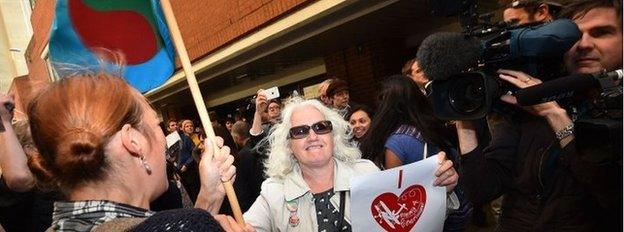
Corbyn supporters were out in force in Brighton
It has become almost a tradition that Labour leaders will be greeted by protesters as they arrive at the TUC Congress; angry at the compromises of government or opposition.
But traditions are changing rapidly within the Labour movement.
"Jez we can! Jez we can!" chanted supporters of the self styled People's Republic of Brighton and Hove who had gathered outside too.
"Finally we have someone who truly represents us!" one of the supporters, Libby, told me excitedly.
Read more from Chris and our other correspondents
Jeremy Corbyn - the Islington years

Reflecting on the "fast journey" that he had taken since being elected leader on Saturday, Mr Corbyn vowed to "build" on the momentum generated by his successful leadership campaign to develop a new kind of politics, saying 30,000 people had joined the Labour Party in the past three days.
In his speech, he defended the make-up of his shadow cabinet amid complaints that women had been overlooked for top jobs and said he would take the fight to the government on the economy.
"They call us deficit deniers. But then they spend billions cutting taxes for the richest families or for the most profitable businesses.
"What they are is poverty deniers: ignoring the growing queues at food banks. Ignoring the growing housing crisis. Cutting tax credits when child poverty rose by half a million under the last government to over four million. Let's be clear, austerity is a political choice."
'Reckless policies'
Labour, he said, would also vigorously oppose the government's plans to reduce the household cap on benefits and cut child tax credits, measures being debated in the Commons on Tuesday.
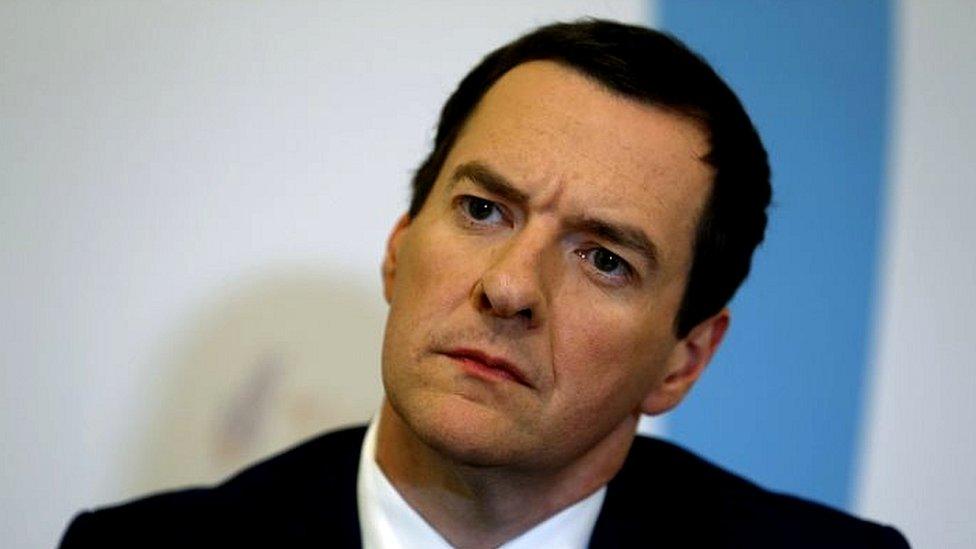
Chancellor George Osborne says Jeremy Corbyn's policies will wreck the economy
"We will bring the welfare bill down by controlling rents and boosting wages, not by impoverishing families and socially cleansing our communities."
Mr Corbyn, who won the backing of major trade unions during Labour's leadership campaign, rejected suggestions that trade union solidarity was a "thing of the past" - saying their influence was felt not just in the workplace but throughout society.
He pledged to fight government legislation which would impose a 50% threshold for participation in strike ballots, and a 40% threshold for stoppages involving essential public services, saying it was a "declaration of war" which contravened basic rights of free association.
"They think it is still right to attack trade unions because they exist," he said. "If they get the bill through it will be a damage to the civil liberties of society."
Writing in the Times, external, Chancellor George Osborne said Mr Corbyn's "reckless" economic policies would lead to higher income taxes and cost jobs.
"By printing cash to pay for public spending, it would stoke inflation, ramp up prices and undermine the real-terms pay rises that many have worked so hard for," said Mr Osborne. He called Mr Corbyn's renationalisation plans an "industrial policy straight out of the 1970s".

Are you an employer or employee? What do you think of Jeremy Corbyn's views on the UK's role in the EU? Email haveyoursay@bbc.co.uk, external with your stories.
Please include a contact number if you are willing to speak to a BBC journalist.
WhatsApp: +44 7525 900971
Send pictures/video to yourpics@bbc.co.uk, external
Tweet: @BBC_HaveYourSay, external
Send an SMS or MMS to 61124 or +44 7624 800 100
- Published15 September 2015
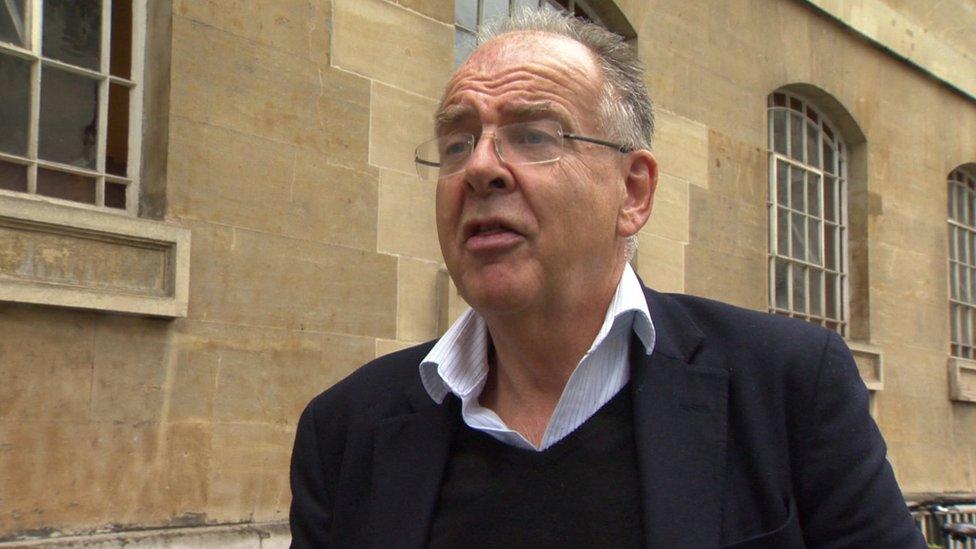
- Published14 September 2015
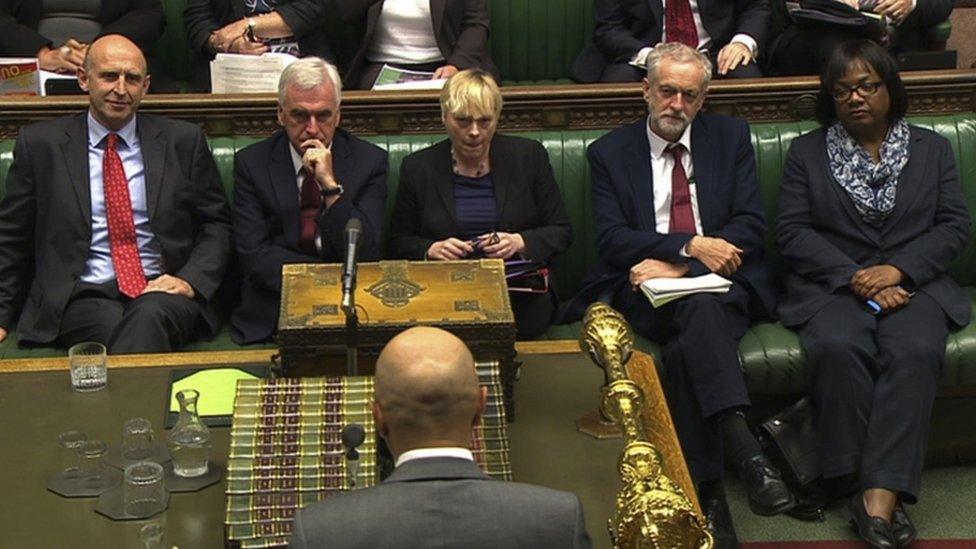
- Published14 September 2015
- Published14 September 2015
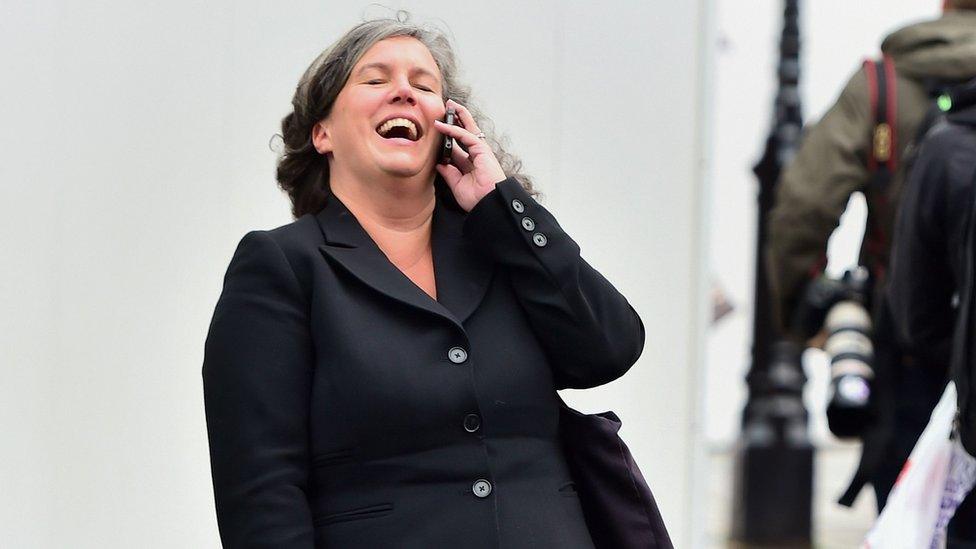
- Published14 September 2015
